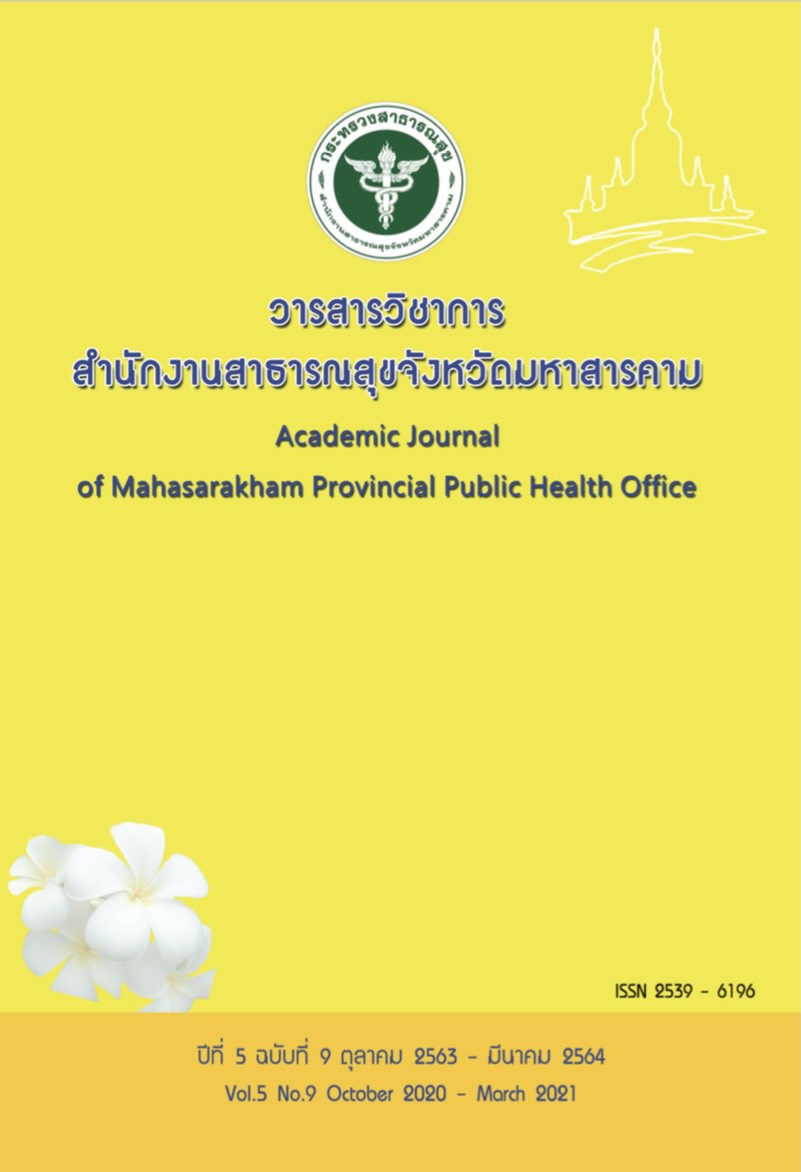Factors related to the infectious waste management behavior of personnel in Phichit Hospital
Abstract
Abstract
This research was analyticresearch (Cross-Sectional analytic Study) to study the infectious waste management behavior of personnel in Phichit Hospital, to study various factors related to the infectious waste management behavior of personnel in Phichit Hospital and study the problems, obstacles and recommendations for the development of infectious solid waste management behavior of personnel in Phichit Hospital. The sample of 300 infectious waste management behavior of personnel in Phichit Hospital. The research instruments were questionnaires that analyzed data by distributing frequency, percentage, mean, standard deviation. Find relationships with Chi-Square test significance Level at 0.05 and analyze the content.
The results showed that Phichit hospital personnel wereFrequency 245 (81.67 %), with a mean age of 39.73 years. The most of them graduated with a bachelor's degree, Frequency 163 (54.33 %). The average monthly income of 24,583.86 baht. Marital status of the couple Frequency 157 (52.33%). A position in medical treatment Frequency 243 (81.00%). Average time spent in government agencies and working experience in infectious waste management is 15.08 years. Frequency 182 (60.67%) used to attend training/ seminars/meetings to clarify about infectious waste management and Frequency 259 (86.33%) received information about infectious waste management.
Personnel in Phichit Hospital have knowledge, attitudes and behaviors of infectious waste management. They were at the most moderate level (69.33%, 58.00% and 59.67%, respectively). Personal factors were gender, education level, income, job position, training/seminar/clarification meeting. And obtaining information, knowledge and attitudes were related to the infectious waste management behavior of personnel in Phichit Hospital.
The statistical significance (p<0.001) level.
The problems of obstacles and recommendations for the development of infectious waste management behavior. There are obstacles personnel with insufficient knowledge and understanding. The attitudes and behaviors are not thorough relatively little knowledge and information, insufficient personnel, materials, equipment, vehicles and premises, inconvenient monitoring, control, supervision and evaluation, and lack of motivation. Suggestions announced as a policy set measures and agreements, organized training and advice campaign to disseminate knowledge and news promote the behavior of personnel to participate in the infectious waste management in a correct and appropriate manner at every step. Support personnel, materials, vehicles, and provide appropriate and adequate environment and location. The forum to exchange knowledge and contest innovative works, create motivation, personal health check up, follow up, supervise, control, randomize, review and evaluate the work continuously.
Keywords: Factors, behavior, infectious waste management, Knowledge, Attitude


